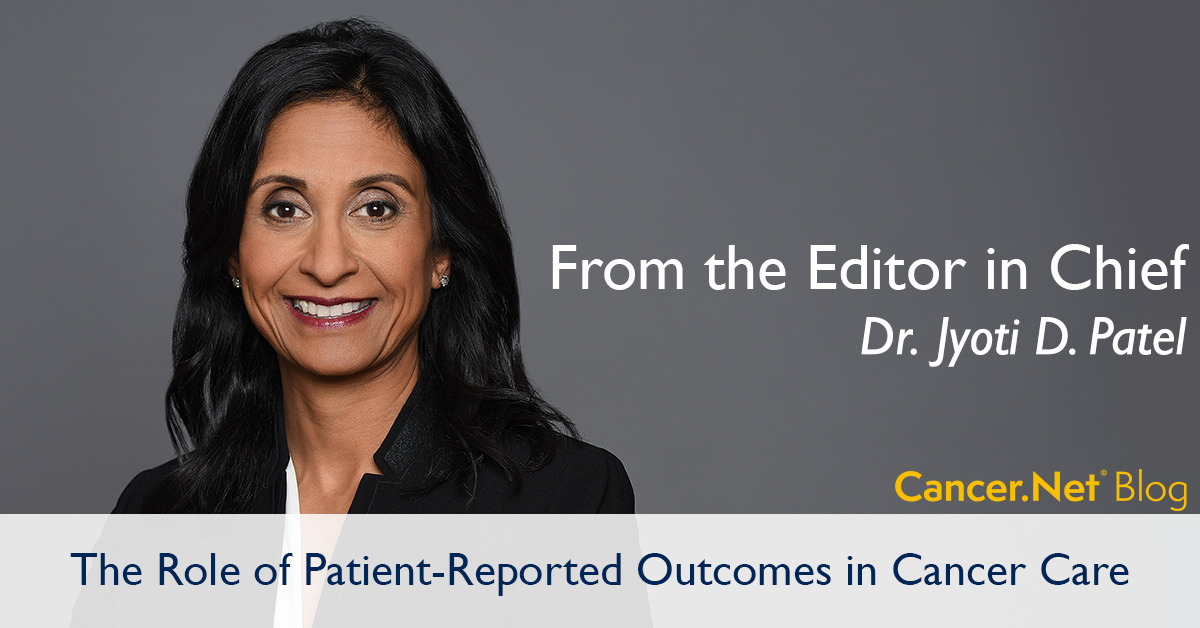
Each year, the president of the American Society of Clinical Oncology (ASCO) selects a theme for the ASCO Annual Meeting, an event that brings together cancer researchers and clinicians from around the world to discuss the latest research and developments in cancer care. This year, the ASCO Annual Meeting theme selected by the 2022-2023 ASCO President, Eric P. Winer, MD, FASCO, was “Partnering with Patients: The Cornerstone of Cancer Care and Research.”
Those of us who care for people with cancer know how important it is to be true partners with our patients during every step of their cancer care. One of the ways we strive to do this is by incorporating the patient’s voice in clinical decision-making. To do so, we use a tool called “patient reported outcomes (PROs).” A PRO is a report of the status of the patient, including their physical function and emotional well-being, that comes directly from the patient. This means there is no interpretation of the patient’s response by a clinician or anyone else.
We know there are parts of the cancer story that only the person with cancer, a family member, or a caregiver can provide. This is the type of critical information we seek to gather through PROs, including:
-
The types of symptoms the person is experiencing
-
The burden of the symptoms on their quality of life
-
The overall impact of cancer on their daily life
-
Their perception toward the disease or treatment that is being given
PROs are collected using validated questionnaires filled out by the person with cancer. Often, they are done using paper questionnaires. However, more and more frequently, some of the reporting is being done remotely through patient portals that are linked to electronic health records or web-based surveys. These questionnaires range from general health surveys to diagnosis-specific measures.
While clinicians have been trained to assess clinical health measures, such as blood pressure or lab tests, and tap into their own expertise when making treatment recommendations, it’s an important and evolving shift for us to also consider PROs. PROs can help further inform health care providers about what their patients are experiencing so they can better partner with them when making treatment decisions and, ultimately, deliver higher quality cancer care. And, with PROs, there is no room for bias or misinterpretation from health care workers.
Traditionally, when doctors evaluated a new cancer treatment for our patients, we cared predominantly about whether that particular intervention could improve survival. But now, even when improving survival is still a primary consideration, we also think about the quality of that longevity. We no longer narrow our focus to only the length of time an intervention can give our patients. Rather, we think about whether the intervention lessens the burden of cancer and allows the person to participate more fully in what they prioritize. PROs help us with these considerations, as they allow us to better understand a patient’s overall health condition, goals, and unique factors related to their care.
Overall, the incorporation of PROs gives us a fuller picture of the global impact of cancer on people living with the disease. By incorporating PROs, health care providers are shifting to a more patient-first mindset. We think about how cancer affects an individual, and we gain important insight into how to partner with our patients for the best outcome.
Be sure to talk with your doctor about PROs and ask about the role this tool may play in your cancer care.






